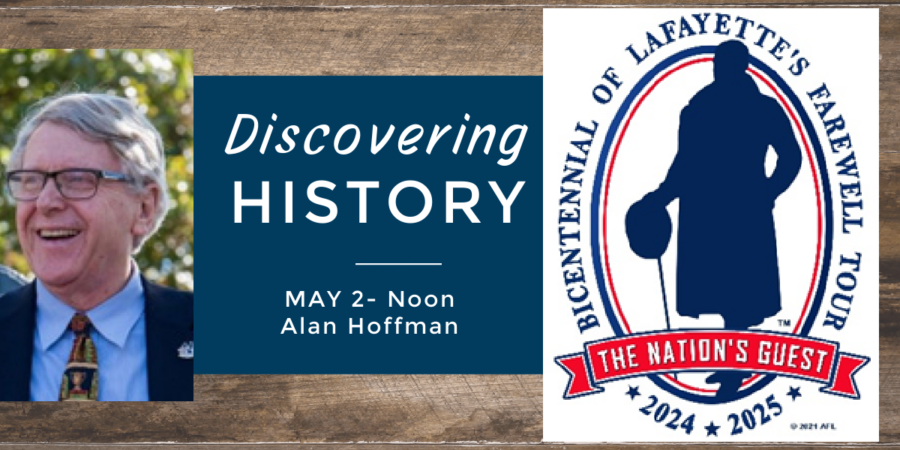Lafayette and Human Rights
Alan Hoffman, President of The American Friends of Lafayette
Lafayette’s first foray into human rights work was in the American Revolution which he saw as a cause important to all mankind. He wrote this as he sailed to America months prior to his 20th birthday: “The welfare of America is intimately connected with the happiness of all mankind; she will become the respectable and safe asylum of virtue, integrity, tolerance, equality and peaceful liberty.” He continued to promote natural rights – what he called “the Rights of Man and the Citizen” in his 1789 declaration in France – through his support for revolutions in Europe and South America.
Lafayette used his prestige and influence to advocate for causes designed to expand and enhance human rights for the oppressed. He lobbied successfully in favor of Protestants in France who had been unable to practice their religion publicly since the Revocation of the Edict of Nantes in 1685. He opposed solitary confinement and the death penalty. He urged universal manhood suffrage in France.
The abolition of American slavery was the cause that engaged Lafayette most intensely and continuously – from 1783 until his death in 1834. One recent biographer describes him as the first international abolitionist. He spoke truth to power – both to Washington, his paternal friend in the 1780’s, and later to Jefferson in the 1820’s. Lafayette advocated for education of the enslaved and their gradual emancipation. In the 1780’s, after Washington demurred about joining him in the purchase of an experimental abolitionist plantation in America, Lafayette purchased one in French Cayenne and had his overseer provide education for the workers and pay them wages until they could buy their freedom. Lafayette was a close friend of Thomas Clarkson, the British abolitionist who in 1845, 11 years after Lafayette’s death, quoted him as follows: “I would never have drawn my sword in the cause of America, if I could have conceived that thereby I was founding a land of slavery.” After Clarkson’s letter was published in the Liberator in January, 1846, abolitionists used “Lafayette’s Lament” to advance their cause.
Alan R. Hoffman obtained his BA in history from Yale where he studied under Professor Edmund Morgan, before earning a JD at Harvard Law School. He practiced law in Boston for 50 years. An avid reader of early American history, he “discovered” Lafayette in 2002 and spent two years – 2003 to 2005 – translating Auguste Levasseur’s Lafayette in America in 1824 and 1825, the first-hand account of Lafayette’s Farewell Tour of America written by his private secretary. This translation was published in 2006 and is in its third printing. Hoffman has lectured widely on Lafayette – over 200 talks – and has spoken in each of the 24 states (and Washington DC) which Lafayette visited during the Farewell Tour, as well as La Grange, Texas and Lafayette and Denver, Colorado.
This event is sponsioed by the Washington County Public Library, and is FREE and open to the public.
Discovering History Speaker Series

